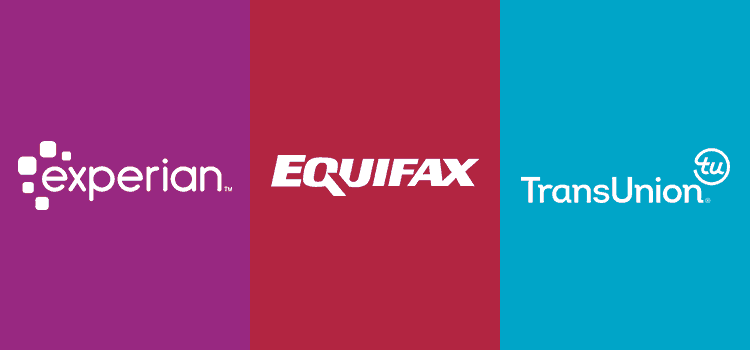Equifax vs Experian vs TransUnion: Comparing the Three Major Credit Bureaus
When it comes to credit reporting, Equifax, Experian, and TransUnion are the three major credit bureaus that play a crucial role in determining your credit score and financial health. These companies collect, store, and analyze credit information on consumers to create credit reports, which lenders use to evaluate creditworthiness. But what exactly sets these bureaus apart from one another, and what are the pros and cons of each? In this article, we dive deep into understanding Equifax, Experian, and TransUnion, their differences, and their respective strengths and weaknesses.
Understanding the Role of Credit Bureaus
Credit bureaus, also known as credit reporting agencies (CRAs), are institutions that gather financial data from lenders, creditors, and other financial institutions. This data is then compiled to create a credit report, which is used to calculate credit scores. Credit scores are vital as they help lenders assess a borrower’s credit risk before approving a loan or credit card.
Equifax, Experian, and TransUnion are the largest CRAs in the United States, and each of them has a slightly different method of collecting, processing, and reporting data, which is why credit scores can vary from one bureau to another.
Equifax: Overview, Pros, and Cons
Equifax is one of the oldest credit bureaus, founded in 1899, and is headquartered in Atlanta, Georgia. It collects information on over 800 million individuals and more than 88 million businesses worldwide. Equifax uses both the FICO scoring model and its proprietary model to provide credit scores. The company is known for its comprehensive credit monitoring and identity protection services.
Equifax is one of the oldest credit bureaus, founded in 1899, and is headquartered in Atlanta, Georgia. It is known for offering a variety of credit monitoring and identity theft protection services. Equifax provides a FICO credit score, which is widely used by lenders for credit decisions.
Pros of Equifax
- Comprehensive Credit Monitoring: Equifax provides a robust credit monitoring service that offers real-time alerts for any changes in your credit profile, helping you stay aware of potential fraudulent activities.
- Identity Theft Protection: The bureau provides several identity theft protection tools, including dark web scanning, which helps detect when personal information is being misused.
- Credit Lock Feature: Equifax allows users to lock their credit report, providing an extra layer of protection against unauthorized access.
Cons of Equifax
- Data Breaches: Equifax faced a major data breach in 2017, compromising the personal information of over 147 million people. This incident has led to trust issues among some consumers.
- Inconsistent Scores: Equifax credit scores may differ significantly from Experian and TransUnion due to differences in data collection and processing, which may confuse consumers.
- Limited Free Access: While Equifax provides free credit report thru out the year, it lacks some of the free services that its competitors offer, such as more frequent credit score updates.
Experian: Overview, Pros, and Cons
Experian started its operations in America in 1996 but has its roots dating back to 1826 in England. It is headquartered in Dublin, Ireland, and provides credit information on millions of individuals globally. Experian uses both FICO and its own scoring model, called the PLUS score, which ranges from 330 to 830. Experian also offers Experian Boost, a unique feature that allows consumers to add positive payment history from utilities and streaming services to their credit report.
Experian is a global credit bureau headquartered in Dublin, Ireland, with a significant presence in the United States. Experian is known for offering credit monitoring, identity theft protection, and credit scoring services. Experian uses the FICO 8 model, which is one of the most common scoring models used by lenders.
Pros of Experian
- FICO Score Access: Experian provides free access to your FICO 8 score, which is the score most lenders use for credit decisions, giving you a clear view of your creditworthiness.
- Experian Boost: Experian offers a unique feature called Experian Boost, which allows users to add positive payment history from utility bills, phone bills, and streaming services to their credit report. This can potentially improve credit scores for those with limited credit history.
- User-Friendly Interface: The Experian mobile app and website offer a seamless and user-friendly experience, allowing users to access their credit reports and scores easily.
Cons of Experian
- Limited Coverage: Experian may not have as comprehensive coverage of credit accounts as Equifax or TransUnion, leading to discrepancies in credit reports.
- Premium Services: While Experian offers a free credit report, many of its advanced services, such as daily credit monitoring, require a subscription fee.
- Variable Scoring: Just like the other bureaus, Experian’s credit score can differ from those reported by Equifax and TransUnion, leading to confusion for consumers who monitor their credit.
TransUnion: Overview, Pros, and Cons
TransUnion was founded in 1968 and is headquartered in Chicago, Illinois. TransUnion provides credit reports, credit scores, and identity protection services to consumers across 30 countries. It uses both FICO and VantageScore to assess creditworthiness. TransUnion has enhanced its identity protection capabilities through acquisitions, including Neustar and Sontiq, to expand its consumer interactive solutions.
TransUnion is headquartered in Chicago, Illinois, and is one of the major credit reporting agencies in the U.S. TransUnion provides credit reports, credit scores, and fraud protection services, and is known for its consumer-friendly tools.
Pros of TransUnion
- Credit Monitoring Alerts: TransUnion provides timely credit monitoring alerts, notifying users of any changes in their credit profile, including new accounts or credit inquiries.
- TrueIdentity Protection: TransUnion offers a free identity protection service called TrueIdentity, which allows users to lock and unlock their credit reports at no cost, giving users better control over their data.
- VantageScore: TransUnion provides both FICO and VantageScore credit scores, offering a broader view of creditworthiness for consumers who want more insights.
Cons of TransUnion
- Less Frequent Updates: TransUnion credit score updates are not as frequent as those provided by Experian, which may lead to delays in tracking credit changes.
- Subscription Costs: Accessing advanced features, such as detailed credit reports and scores, requires a paid subscription, which might be a deterrent for some users.
- Score Variability: Like Equifax and Experian, TransUnion’s credit score can also vary, causing differences in the reported creditworthiness of an individual.
Key Differences Between Equifax, Experian, and TransUnion
While all three credit bureaus essentially perform the same function, there are notable differences between them. These differences may affect how they report credit scores, which data they include in reports, and how they handle consumer disputes.
- Data Collection: Each bureau collects data independently, which means creditors may report to one, two, or all three bureaus. This is why information can vary between the three credit reports.
- Credit Scoring Models: While Equifax, Experian, and TransUnion all use the FICO scoring model, they also use other proprietary models. Experian offers Experian Boost, allowing consumers to enhance their scores based on utility payments. TransUnion provides both FICO and VantageScore, while Experian also offers the PLUS score.
- Consumer Services: Experian tends to focus more on consumer-facing products, such as offering free access to FICO scores, while TransUnion emphasizes identity protection through TrueIdentity. Equifax, on the other hand, has enhanced its identity theft protection measures since the 2017 data breach, including offering credit lock features.
While all three credit bureaus essentially perform the same function, there are notable differences between them. These differences may affect how they report credit scores, which data they include in reports, and how they handle consumer disputes.
- Data Collection: Each bureau collects data independently, which means creditors may report to one, two, or all three bureaus. This is why information can vary between the three credit reports.
- Credit Scoring Models: While Equifax, Experian, and TransUnion all use the FICO scoring model, they may also use their proprietary models. Experian’s unique offering, Experian Boost, also sets it apart by enabling consumers to enhance their scores based on utility payments.
- Consumer Services: Experian tends to focus more on consumer-facing products, such as offering free access to FICO scores, while TransUnion emphasizes identity protection through TrueIdentity. Equifax, on the other hand, has enhanced its identity theft protection measures since the 2017 data breach.
Which Credit Bureau is Most Reliable?
There is no definitive answer as to which credit bureau is the most reliable since each one has its own strengths and weaknesses. Lenders typically pull reports from all three bureaus to get a comprehensive picture of an applicant’s creditworthiness. The reliability of each bureau often depends on what data they have available and how accurately they represent a consumer’s financial history.
For consumers, using services from all three bureaus may be beneficial to get a complete view of their credit status. Monitoring reports from Equifax, Experian, and TransUnion ensures that inaccuracies are quickly spotted and addressed.
Pros and Cons Summary
Equifax
- Pros: Comprehensive credit monitoring, identity theft protection, credit lock feature.
- Cons: History of data breaches, inconsistent scores, limited free access.
Experian
- Pros: Free FICO score access, Experian Boost feature to add utility and streaming payments, user-friendly interface.
- Cons: Limited coverage of credit accounts, premium services, variable scoring models.
TransUnion
- Pros: Credit monitoring alerts, TrueIdentity protection, access to both FICO and VantageScore.
- Cons: Less frequent updates, subscription costs for advanced services, score variability.




No Comment! Be the first one.